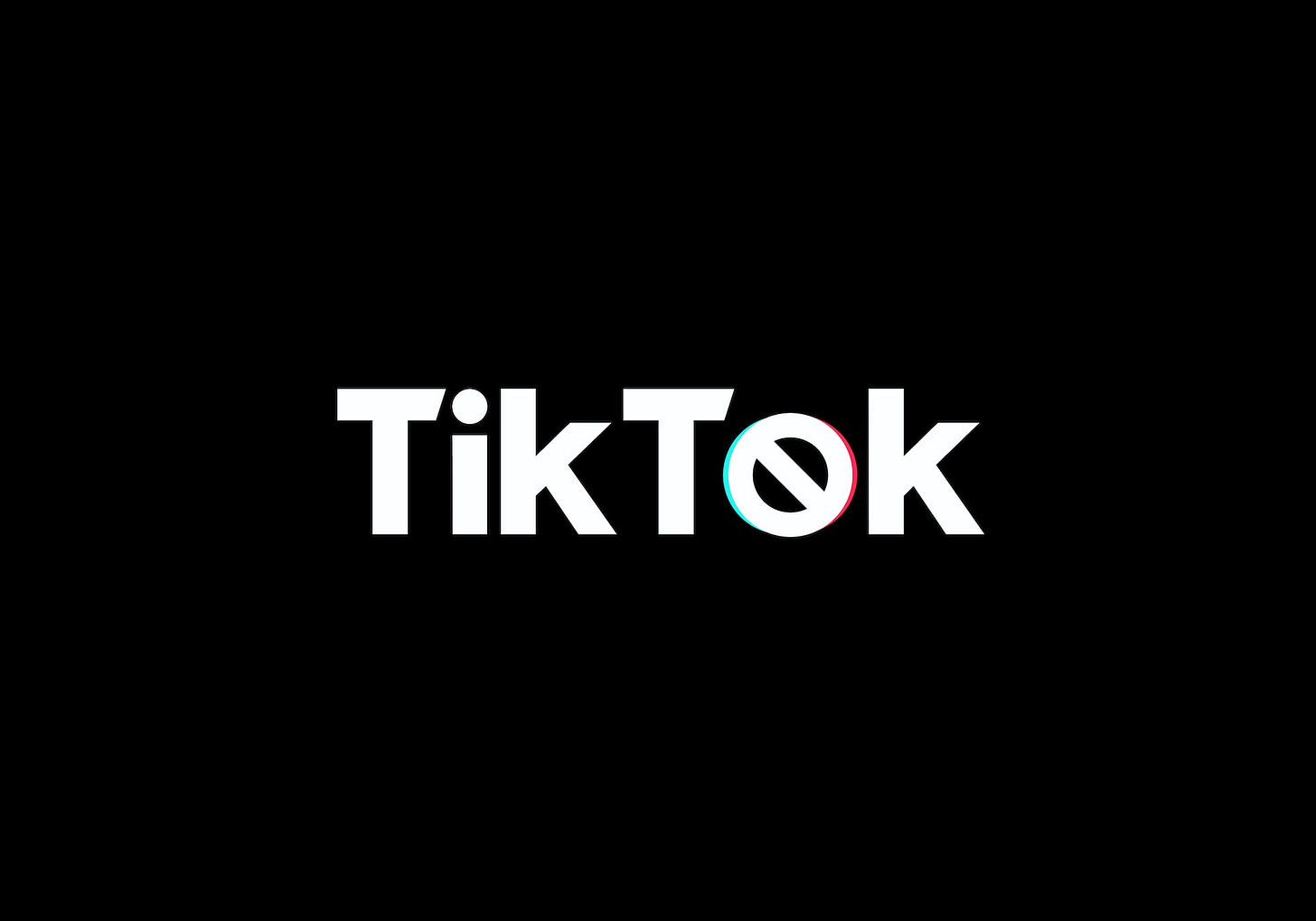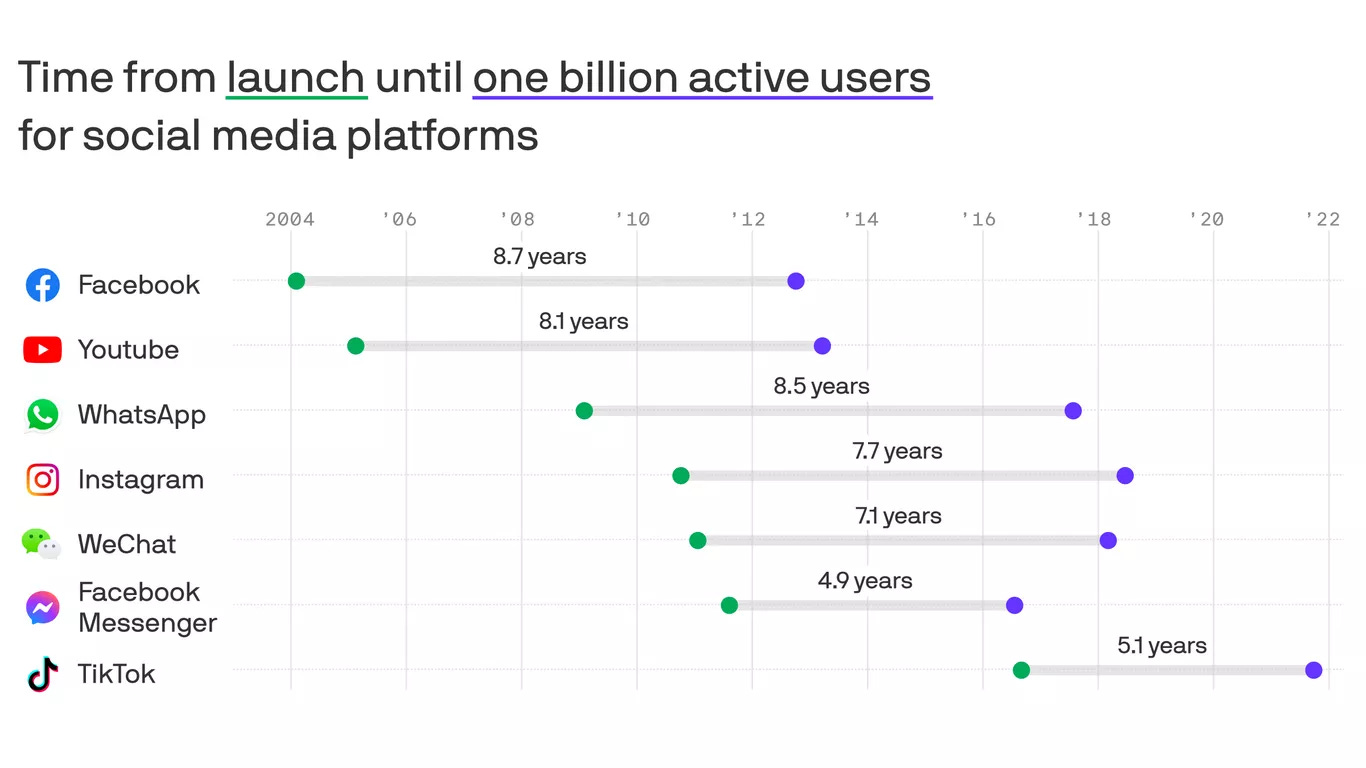10 Predictions for 2023: No. 1 - TikTok U.S. Will Be Spun Off or Banned
The U.S. Congress is starting to believe that it is untenable for TikTok to continue operating in the U.S. under Chinese ownership
(I’m making 10 predictions for 2023. Find the links to my others at the bottom of this post.)
I’ve had TikTok on my phone on two separate occasions, each during the height of the pandemic and each time for a mere few weeks. Each bout ended with me deleting the app after realizing I was unintentionally and mindlessly spending too much time on it.
For me, TikTok was addictive.
I’m not alone. TikTok is one of the fastest-growing social media apps in history. It consumes more global time and attention than any of its competitors. It directs the American cultural conversation more than any other source of media.
As I did in 2020 and 2021, the U.S. will delete TikTok in 2023.
TikTok will either be spun off from its Chinese-based parent company, ByteDance, or TikTok will be banned in the United States.
Whether you use it or not, like it or not, or believe it is a threat or not, the U.S. Congress is starting to believe that it is untenable for TikTok -- as a potential tool of mass surveillance and the most culturally influential content-distribution platform -- to continue operating in the U.S. under foreign, specifically Chinese, ownership.
Lawmakers believe TikTok poses two threats:
TikTok as a mass-surveillance tool. Both Democratic and Republican senators have made the case — and even proposed legislation in support of the belief — that TikTok is a tool of mass surveillance. In October, Forbes reported that a “China-based team at TikTok’s parent company, ByteDance, planned to use the TikTok app to monitor the personal location of some specific American citizens.”
TikTok’s influence over the American culture could be used to undermine American interests. Republican lawmakers Marco Rubio and Mike Gallagher recently wrote an op-ed in the Washington Post that, among other things, says that “The [Chinese Communist Party] could also use TikTok to propagate videos that support party-friendly politicians or exacerbate discord in American society. Such videos need not originate from CCP proxies — they could be created by anyone. With essentially unlimited data on user-made content at its disposal, Beijing can leverage it to fan the flames of domestic division.”
Both arguments are compelling, the latter especially.
Yet, the potential to conduct surveillance or sew algorithmic discord isn’t unique to TikTok. Many of the most popular apps on your phone are ruthlessly intrusive about tracking you and harnessing your data. And apps such as Facebook and Twitter are highly culpable of contributing to the weakening of American democracy.
But while American tech companies optimize for engagement with a reckless disregard for their effects on American society, lawmakers don't fear that they are actively trying to undermine it.
Unlike the Trump Administration’s 2020 TikTok ban, which languished in the courts before being overturned by Biden in 2021, bipartisan support for a ban is gaining momentum. As the New York Times reports:
“In the past several weeks, at least 14 states have banned TikTok on government-issued devices. In Congress, lawmakers are expected to vote this week on a sweeping spending bill that includes a ban of TikTok on all federal government devices. A separate bipartisan bill, which was introduced in Congress last week, would ban the app for everyone in the United States. In addition, Indiana’s attorney general has sued TikTok, accusing the company of being deceptive about the security and privacy risks the app poses.”
In 2023, this momentum will turn into law.
I would bet on this ending with a spin-off of TikTok's U.S. operations instead of an outright ban. Despite ByteDance’s previous suggestions that it would rather shut down its U.S. business rather than spin it off, a ban would forfeit too much economic value for ByteDance.
Here are some great reads on this topic:
I’m making 10 Predictions for 2023. Read my others below.




